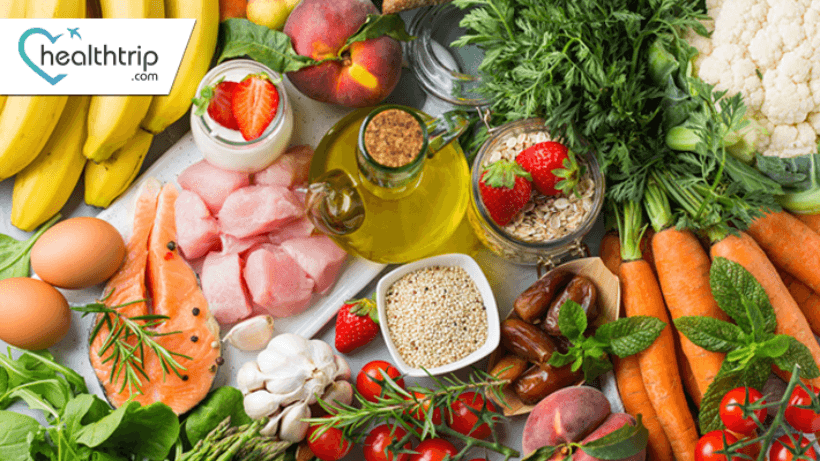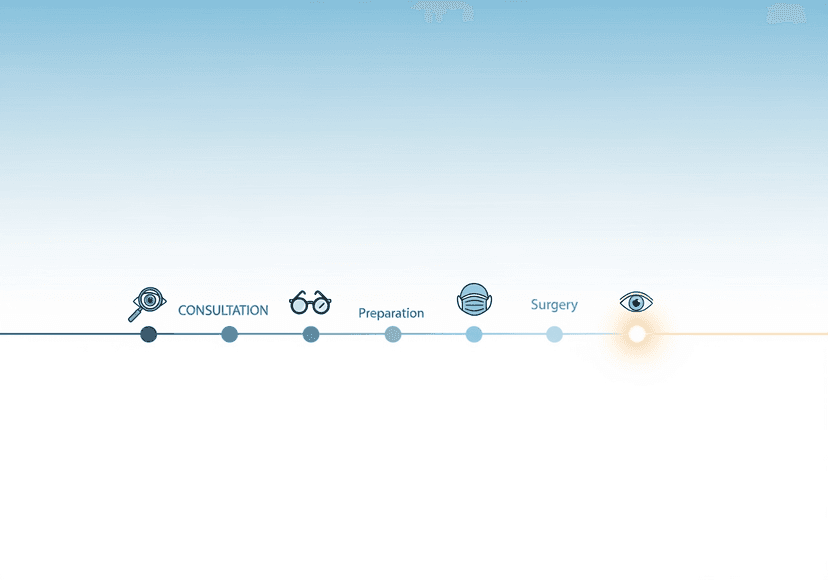
The Role of Nutrition in Managing and Preventing Prostate Cancer
21 Nov, 2023
 Healthtrip Team
Healthtrip TeamProstate cancer is a prevalent and often life-altering disease that affects millions of men worldwide. While genetics and age play significant roles in its development, emerging research suggests that lifestyle factors, particularly nutrition, can play a crucial role in managing and preventing prostate cancer. In this blog, we will explore the impact of diet on prostate health and discuss dietary strategies that may contribute to the prevention and management of prostate cancer.
Most popular procedures in India
The prostate is a walnut-sized gland that plays a vital role in the male reproductive system. Prostate cancer occurs when cells in the prostate mutate and multiply uncontrollably. Age, family history, and race are established risk factors, but recent studies have underscored the importance of lifestyle choices, including diet, in influencing prostate cancer risk.
Wellness Treatments
Give yourself the time to relax
Lowest Prices Guaranteed!

Lowest Prices Guaranteed!
Nutritional Components for Prostate Health:
1. Antioxidants: Antioxidants are essential for neutralizing free radicals, unstable molecules that can cause cellular damage and contribute to cancer development. Prostate health can benefit from a diet rich in antioxidants, including Vitamins A, C, and E, as well as selenium. These powerful antioxidants can be found in a variety of foods such as:
- Vitamin A: Carrots, sweet potatoes, spinach, kale
- Vitamin C: Citrus fruits, strawberries, bell peppers, broccoli
- Vitamin E: Nuts and seeds, spinach, broccoli, almonds
- Selenium: Brazil nuts, sunflower seeds, fish, poultry
2. Omega-3 Fatty Acids: Omega-3 fatty acids, particularly EPA and DHA, found in fatty fish like salmon, mackerel, and sardines, play a vital role in reducing inflammation. Chronic inflammation is associated with an increased risk of cancer, making omega-3s a valuable addition to a prostate-healthy diet. Plant-based sources of omega-3s include flaxseeds, chia seeds, and walnuts.
3. Cruciferous Vegetables: Cruciferous vegetables contain bioactive compounds, such as sulforaphane, that have demonstrated anti-cancer properties. Incorporate these vegetables into your diet for prostate health:
- Broccoli: Rich in sulforaphane and fiber
- Cauliflower: Contains sulforaphane and provides a variety of nutrients
- Brussels Sprouts: High in fiber, vitamins, and antioxidants
4. Tomatoes and Lycopene: Tomatoes are a standout food for prostate health due to their high lycopene content. Lycopene, a carotenoid with potent antioxidant properties, has been linked to a potential reduction in prostate cancer risk. Cooking tomatoes, as in sauces or stews, enhances lycopene absorption. Other sources of lycopene include watermelon and pink grapefruit.
5. Green Tea: Green tea is rich in polyphenols, particularly catechins, which have demonstrated anti-cancer effects. Regular consumption of green tea may contribute to prostate health. Aim for freshly brewed green tea and consider incorporating it into your daily routine.
6. Zinc: Zinc is an essential mineral that plays a crucial role in immune function and may have protective effects against prostate cancer. Good dietary sources of zinc include:
- Meat: Beef, lamb, pork
- Dairy: Milk, cheese, yogurt
- Nuts and seeds: Pumpkin seeds, cashews, almonds
Discover More: Empower Yourself: Proactive Steps for Preventing Prostate Problems (healthtrip.com)
Dietary Recommendations:
1. Embrace a Plant-Based Diet: A plant-based diet, rich in fruits, vegetables, whole grains, and legumes, provides a wide array of nutrients and phytochemicals that support overall health and may reduce the risk of prostate cancer.
2. Moderate Red Meat Consumption: Limiting the intake of red and processed meats is advisable, as excessive consumption has been associated with an increased risk of prostate cancer. Opt for lean protein sources such as poultry, fish, beans, and tofu.
3. Stay Hydrated: Adequate water intake is crucial for overall health and may contribute to prostate health by supporting proper bodily functions and reducing the risk of urinary tract infections. Aim for at least 8 glasses of water per day.
4. Limit Dairy Products: Some studies suggest a potential link between high dairy consumption and an increased risk of prostate cancer. Consider opting for low-fat dairy or exploring non-dairy alternatives like almond or soy milk to maintain a balanced and prostate-friendly diet.
While a healthy diet cannot guarantee the prevention of prostate cancer, incorporating nutrient-rich foods and making mindful dietary choices can contribute to overall prostate health. It's crucial to consult with healthcare professionals for personalized advice and to combine a nutritious diet with other lifestyle factors, such as regular exercise and routine screenings, for comprehensive prostate cancer management and prevention. Remember, small dietary changes today can lead to significant health benefits tomorrow.
Most popular wellness packages
Related Blogs

Do's and Don'ts During Recovery After Eye Surgery's Healthtrip Tips
Learn about patient stories, wellness destinations, language support, and post-treatment

Timeline: What Your Eye Surgery Journey Looks Like with Healthtrip
Learn about patient stories, wellness destinations, language support, and post-treatment

Luxury Wellness Resorts After Eye Surgery in India's Healthtrip Picks
Learn about patient stories, wellness destinations, language support, and post-treatment

Meet the Doctor: Leading Eye Surgery Experts on Healthtrip's Panel
Learn about patient stories, wellness destinations, language support, and post-treatment

How Healthtrip Bridges Language Gaps for Eye Surgery Patients
Learn about patient stories, wellness destinations, language support, and post-treatment

Affordable + Safe: What Makes Healthtrip Unique for Eye Surgery Travel
Learn about patient stories, wellness destinations, language support, and post-treatment










